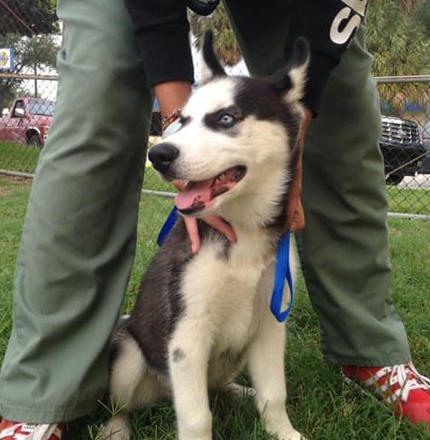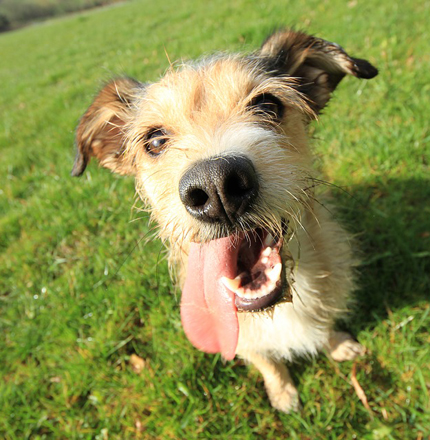Keeping cool in the summer
 Many of you know that I’m not originally from Florida. For those of you that didn’t know, I’m originally from upstate New York. Growing up, it could get hot in the summer, but nothing like what we have here in Florida. After living in Florida now for going on 19 years, I’ve learned pretty quickly how our summer heat can effect your pets and what to do about it.
Many of you know that I’m not originally from Florida. For those of you that didn’t know, I’m originally from upstate New York. Growing up, it could get hot in the summer, but nothing like what we have here in Florida. After living in Florida now for going on 19 years, I’ve learned pretty quickly how our summer heat can effect your pets and what to do about it.
Getting ready to head in to work this morning, it was 81 degrees and the humidity was in the mid 70’s. You know what that’s like- but it’s even harder on our pets. Our pets can not cool themselves like humans can. We humans have sweat glands, which is the primary way our bodies control our body temperature. Our pets are not so lucky. On their own, pets either have to pant to try to lower their body temperature, or drink water. So, as pet owners, it is up to us to help them keep cool during the hot summer months.
Here are some tips to keep your pets cool and comfortable:
If you exercise your pet by walking or jogging, do it early in the morning or late at night. Exercising during the cooler part of the day can help to keep your pet from overheating while on a walk or jog. If you must do it during the day when it is hottest, plan your route with shady spots for rest and hydration.
Many shops, restaurants and cafes within popular urban areas have been offering doggie watering stops. Take your own fresh water for your dog, and avoid these watering holes. Viruses and bacteria can easily be spread by a common water bowl, including Giardia. Giardia is easily spread between pets, and if even one dog carrying the virus drinks from the dish, each of the dogs following will most likely get it too.
If possible, swim your pet for exercise. Many dogs love water, but don’t force them to swim if they are afraid. Of course, if your pet is in the pool, keep them within your sight at all times.
Dogs cool from the bottom up – A wet cold towel for on their belly will cool them down faster than when laid on top of it’s coat.
There have been too many tragic stories of young children being locked in cars. Many have perished. As I have mentioned, your pets are more susceptible to the heat since they do not sweat, and are covered in fur. Never, ever leave your pet in the car, even if the windows are down, or cracked. Not only is it dangerous for your pet, it is also illegal. Florida recently passed a good Samaritan law which allows the forcible entry into vehicles to save pets from overheating.
Let your dog dig! Dogs in nature dig their dens to find food, hide, and to keep cool!
Make pet friendly popsicles or ices cubes to help keep them cool! There has been information circulating that ice water or ice cubes will cause your pet’s stomach to bloat. This is not true. Actually, adding ice to your pet’s water dish may slow down the speed of their water consumption, which is a good thing.
Dogs can sunburn – If you have a white or light colored dog apply sunscreen to their ears and nose to prevent sunburn.
Consider footies or booties for your dog. Ever walked barefoot on hot concrete, sand or asphalt? I’ll bet you have, and you probably didn’t like it. Your dog doesn’t like it either. Dogs absorb and release heat through their feet so it is good to keep their feet cool when they are walking on hot cement or asphalt. A good rule is this: if you can’t walk barefoot on the sidewalk, neither can your pet. Put your hand on the sidewalk, and if you can’t hold it there for more than 5 seconds without getting burned, your pet can’t handle the heat either.
 Know the signs of heat stroke – Early recognition of the symptoms of heat stroke is key to a prompt recovery. Some of the signs of heat stroke are rapid heavy panting, excessive drooling, glazed eyes, difficulty breathing, lethargy, fever, dizziness, lack of coordination, vomiting, deep red or purple tongue, seizure, or unconsciousness. If you think your pet may be suffering from heat stroke move them immediately to a shady or cool area. Apply ice packs to their body and run cool water over your pet. Do not apply cold water as cold water may cause blood vessels near the surface of the body to constrict and may decrease heat dissipation.
Know the signs of heat stroke – Early recognition of the symptoms of heat stroke is key to a prompt recovery. Some of the signs of heat stroke are rapid heavy panting, excessive drooling, glazed eyes, difficulty breathing, lethargy, fever, dizziness, lack of coordination, vomiting, deep red or purple tongue, seizure, or unconsciousness. If you think your pet may be suffering from heat stroke move them immediately to a shady or cool area. Apply ice packs to their body and run cool water over your pet. Do not apply cold water as cold water may cause blood vessels near the surface of the body to constrict and may decrease heat dissipation.
If you suspect your pet is feeling the ill effects of heatstroke, or any other heat-related illness, contact your veterinarian, or local emergency vet immediately. Heatstroke can be fatal to your pet, just like in humans.
